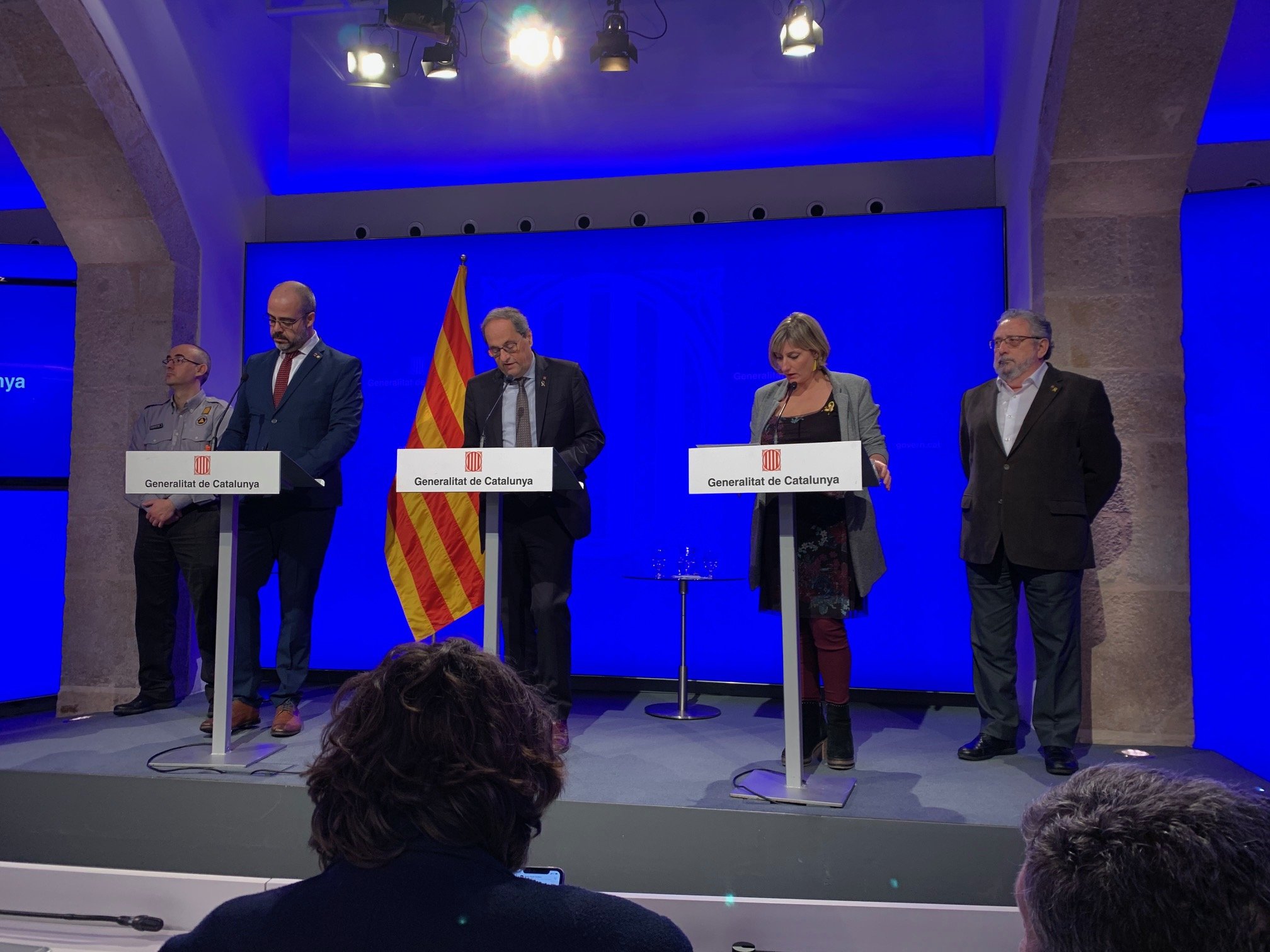Catalonia has moved from "pre-alert" to "alert" status on the coronavirus epidemic. This has been announced by president Quim Torra after meeting early this Wednesday with the Catalan ministers for health, Alba Vergés, and interior, Miquel Buch, as part of the technical committee for Civil Protection (Procicat).
Torra, who did not shy from the difficulty of the current situation, specified the restrictions that this new level of alert will imply from tomorrow Thursday, warning that "stronger and more drastic measures may be needed in the coming days."
He also noted the restrictions already announced by the Catalan government on personnel in strategic and especially sensitive areas such as health, security and care of the elderly - to protect them from exposure and reserve them for tasks in relation to the coronavirus epidemic - as well as the cessation of extracurricular activities in schools that include other educational centres.
The new restrictions
The measures that have been added today include the following restrictions:
- Professional and non-professional sporting events in Catalonia will be held behind closed doors, except for those where minors participate, in which parents will be allowed access.
- Collective activities that involve more than a thousand people, whether in closed or open spaces, are cancelled or postponed. In the case of activities in spaces with capacity of less than a thousand people, they can only be carried out if less than a third of the space is occupied, in order to guarantee the recommended separation to avoid contagion. This applies to all recreational, leisure, cultural and religious activities, whether public or private.
- These measures will take effect tomorrow Thursday for a period of 15 days which may be extended depending on how the situation develops.
- Instructions will be issued that will affect all employees who are Catalan civil servants
The president announced that he has instructed the Catalan government’s economic team to create a plan of measures to combat the coronavirus crisis taking in the areas of business, labour and agriculture. "The government will take all necessary steps to fund public policies that are required to address coronavirus," said Torra.
Interior minister Buch sent a message of calm on food distribution and said that there should be no supply problems, while health minister Vergés reiterated that containment of the disease is still the current priority and that it is still under control. "We want to continue like this, and to do so we believe it is time to take these new precautionary steps," she said.
Key personal measures
Vergés emphasized the need to take into account the simple but key measures recommended by the ministry, such as washing hands frequently, covering one's mouth and nose when sneezing with tissues, handkerchiefs, or forearms, avoiding sharing objects in meetings...
She requested that those who are ill should stay home and that children should not be taken to school if they show any symptoms. "We continue to say that the essential measures are these ones, and we are applying extra measures so that when cases arise we have the capacity to control the epidemic," she said.
The minister emphasized the need to protect healthcare professionals in both the public and private systems, who needed to have time to prepare for the growing number of cases.
Shared responsibility
In terms of complying with these restrictions, Vergés warned that the measures will be enforced, and called for shared responsibility, while Buch emphasized the existence of a regime of punishments for non-compliance with these instructions.
Health ministry secretary, Joan Guix, said that the forecast is that the flu epidemic will end next week, which will take some pressure off the health system. Guix also emphasized that in Catalonia "for the most part" in the cases of coronavirus infection, all the chains by which the virus has passed have been identified.
Those present at the press conference did not want to be drawn on the proposition of closing schools or limiting public transport. Although they did not rule it out, they stressed the current strategy of keeping the disease under control.
The health secretary explained that, despite the lack of knowledge about the virus, its behaviour is relatively similar to the flu virus; this implies that the effect of seasonality could be significant, and therefore, around Easter or later, the effects could be noticeable. In any case, he emphasized that the aim of the measures taken is to reduce the effects as much as possible.

